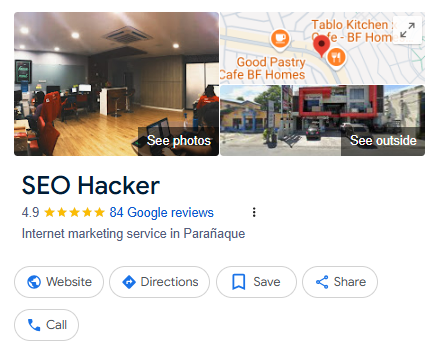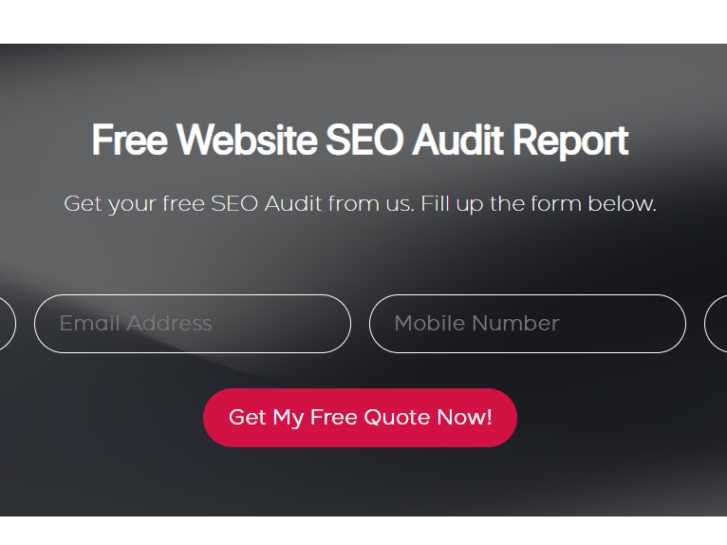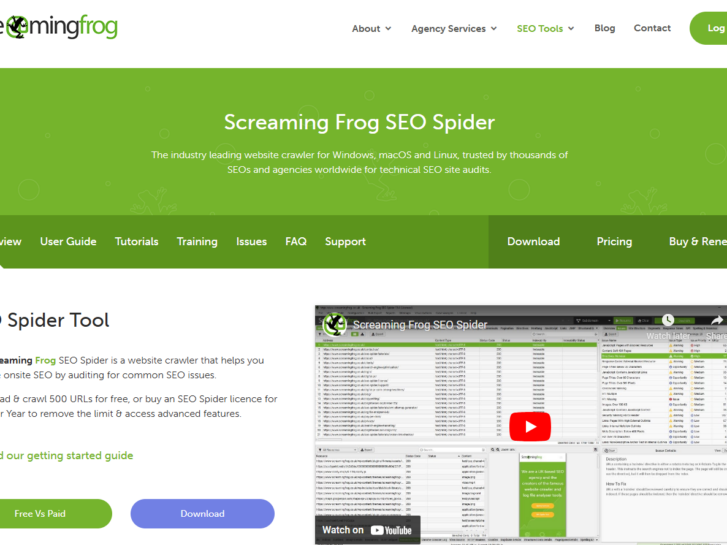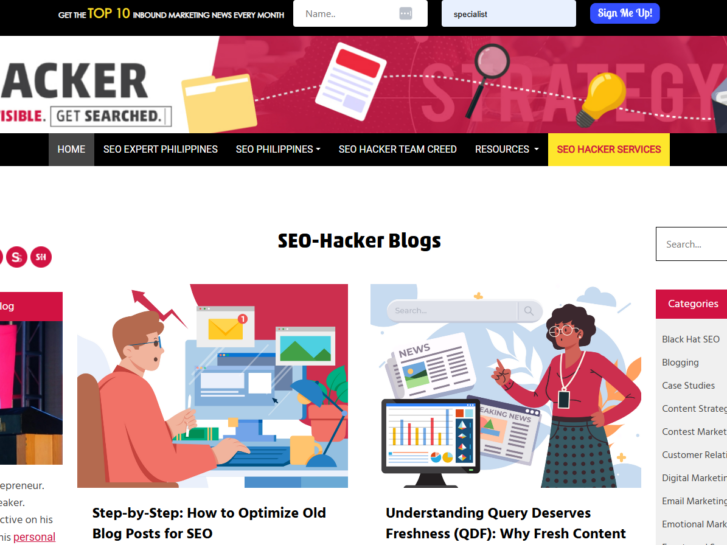Boost Your Business with a Step-by-Step Guide to Local SEO Audits

Local SEO is a game-changer, especially if your business depends on customers from a specific area. Whether you’re running a coffee shop or offering plumbing services, making sure people nearby can find you online is a must. But here’s the thing—optimizing for local search isn’t a one-time deal. It takes consistent effort and a good grasp of what’s working and what’s not. That’s where a local SEO audit comes into play.
In this guide, I’ll walk you through the key steps to run a solid local SEO audit. The goal? To help your business rank higher and stand out from the competition.
Understanding Local SEO
Local SEO is all about making it easier for people in your area to find your business online. It’s like rolling out a digital welcome mat for your local community. This involves things like optimizing your Google My Business Profile, managing those all-important online reviews, and tailoring your website for a local audience.
If you’re running a small business or a physical store, nailing your local SEO can be the secret sauce to staying ahead in a crowded market. The best part? A solid local SEO strategy not only gets you noticed in search results but also brings more people through your doors and boosts online inquiries helping your business grow.
Why Conduct a Local SEO Audit?
If you want your business to thrive locally, a local SEO audit isn’t optional—it’s the secret weapon to success. Here’s why:
- Spot Strengths and Weaknesses: Every business has room to grow, and a local SEO audit helps you uncover yours. By identifying what’s working and what’s not, you’ll know exactly where to focus your efforts to improve your rankings and bring in more customers.
- Boost Your Visibility: Your customers are searching for businesses like yours every day. A local SEO audit ensures you’re not just part of the results but standing out in them. The better your visibility, the more foot traffic, inquiries, and sales you’ll generate.
- Stay Ahead of the Competition: It’s a competitive world out there, and your competitors are gunning for the same audience. A local SEO audit gives you a clear look at their strategies and shows you opportunities to outshine them, keeping your business one step ahead.
Onboarded yet? If you’re ready to dive into improving your local SEO, it’s time to start with a step-by-step local SEO audit checklist.
Step-by-Step Local SEO Audit Checklist

Step 1: Check Your Google Business Profile
Your Google Business Profile (GBP) is your online storefront—it’s where a lot of people will first learn about your business. Therefore, optimizing your google business profile is a must.
- Claim Your Listing: First things first, make sure you’ve claimed your GBP. If you haven’t yet, head over to Google Maps or Google Search and follow the steps to claim it. This is your key to managing and optimizing your profile.
- NAP Consistency: Your business name, address, and phone number (NAP) should match exactly wherever they appear online. Inconsistencies can confuse Google and your potential customers, which means fewer clicks and visits for you.
- Fill Out All the Details: Don’t leave any field blank. Add your business hours, website link, business category, and a clear, concise description that tells people (and Google) exactly what your business is about.
- Stay Engaged: Keep your profile alive and kicking! Post updates, share fresh photos, and reply to reviews—whether they’re good or bad. Regular activity shows both Google and your customers that you’re legit and ready to serve.

Step 2: Keyword Audit
This is where you ensure your website is aligned with the search terms your audience is using.
- Review Relevant Pages: Focus on pages that directly contribute to conversions—like your service pages. For instance, if you offer SEO services in the Philippines, your “SEO Services” page should be optimized for search, and for converting visitors. Include a compelling headline, quick access to your services, and clear calls-to-action like “Get a Free SEO Audit” or “Contact Our SEO Team.”
- Targeting the Right Keywords: Are you targeting the right keywords? For example, if you’re looking to be more visible on Google PH, then use keywords like “SEO Philippines” or “SEO provider Philippines.” Tools like SE Ranking, Semrush, and Ahrefs can help you discover high-volume keywords that match local search behavior, ensuring your site reaches the right audience.
- Map Your Keywords: Make sure your pages have the right keywords mapped to them. . For example, your SEO Services Philippines page can use “SEO Philippines” as the target keyword, with supplementary keywords like “SEO agency Philippines” or “SEO expert Philippines” included to optimize the page for semantic search. This approach helps you cast a wider net while addressing different search intent. If you’re not familiar with this, here’s how to do keyword research for a new website.
- Local Relevance: Optimize your pages for local searches by using location-based keywords naturally. For example, an SEO provider in Manila might include “SEO services Manila” or “digital marketing agency in Manila” on relevant pages. These keywords boost your chances of appearing in local search results and help potential clients find you faster.
Step 3: On-Page Audit
Make sure your content is speaking directly to your local audience and is optimized to grab the attention of search engines.
- Addressing Local Needs: Your content should connect with the specific needs of your local customers. For example, if you’re an SEO company offering SEO and social media marketing in the Philippines, you can create blog posts like “How Parañaque Businesses Can Use SEO to Attract More Customers” or “Social Media Marketing Strategies for Bacolod Entrepreneurs.” By addressing local challenges and opportunities, your content feels relevant and actionable to your audience.
- Relevant Entities: Use keywords and phrases that provide context to search engines. For instance, if you’re targeting businesses in Bacolod, your content might include terms like “SEO Philippines,” “social media marketing Bacolod,” or “SEO provider Parañaque.” These entities help search engines understand what your business is about and ensure your content reaches the right audience.
- Location-Specific Content: Incorporate location details naturally into your content. If SEO Hacker serves clients in Bacolod, you might write case studies like “How Our SEO Strategies Boosted Website Traffic for a Bacolod-Based Café” or create service pages titled “SEO and Social Media Marketing Services in Parañaque.” Mentioning specific cities or neighborhoods not only improves your local search rankings but also builds trust with your target audience.

Step 4: Conduct a Technical SEO Audit
A technical SEO audit is essential to ensure that search engines can easily crawl, index, and rank your site. Here’s what to check:
- Crawlability: Use tools like Screaming Frog to see which pages are being crawled and indexed. If a page isn’t getting indexed properly, then it won’t show up in local search. That indicates these pages may have errors or missing SEO elements that prevent it from being indexed. I have a guide to Google Search Console crawls you can follow to troubleshoot crawl errors.
- Broken Links and Server Errors: Check for broken links—both internal (on your site) and external (linked to other sites). Broken links or server errors, like a 404 page, can harm your user experience. For example, if you have a page about “SEO services in Bacolod” with links to client case studies, ensure those links don’t lead to dead ends.
- Redirects: Look for unnecessary 301 redirects or long redirect chains. These can slow down your website’s load time, hurting both performance and SEO. For instance, if a page about “SEO provider in Parañaque” redirects multiple times before reaching its destination, it can cause delays.
- Robots.txt File: Review your robots.txt file to make sure it’s not accidentally blocking pages you want to be indexed. For example, ensure that important service pages like “SEO Philippines” or “SEO audit services” are being crawled by Google and not blocked by the file.
- Page Speed: Use Google PageSpeed Insights to analyze how quickly your site loads. A slow-loading site can lead to high bounce rates, especially on mobile devices.
- Mobile-Friendliness: Check if your website is mobile-friendly and responsive. Mobile search is a huge factor in SEO today, so it’s important that your pages, especially “SEO services Bacolod” or “SEO Parañaque,” look good and function well on mobile devices.
Step 5: Off-Page SEO Audit
Now, let’s look at your off-page SEO audit:
- Link Analysis: Use tools like Linkody to track how many backlinks point to your site. For example, if you’re targeting “SEO provider in Parañaque” or “SEO services in Bacolod” for local SEO, make sure you have backlinks from trusted local sources like business directories or regional news sites. Quality backlinks from reputable, local sources help build your authority in the eyes of search engines.
- Trusted Links: Ensure the backlinks pointing to your site come from high-authority, reputable websites. For instance, a link from a trusted local publication in Parañaque or Bacolod will carry more weight than a link from a less reputable, unrelated site. High-quality local links strengthen your position in local search rankings, especially for area-specific keywords.
- Identify Spammy Backlinks: Identify any harmful or spammy backlinks that could negatively affect your site’s reputation and result in penalties. For example, links from spammy websites or low-quality directories can harm your SEO efforts. If you spot any, disavow them to protect your local search standing.
Author’s Note: I have other local link-building tips to boost your SEO & search rankings you should follow if you want to be more visible in local search.
Key Takeaway
Conducting a local SEO audit is all about boosting your visibility in local search results. By following a simple, step-by-step approach, starting with checking your Google Business Profile, auditing your keywords, optimizing your on-page content, making sure your site is technically sound, and evaluating off-page factors, you’ll improve your chances of standing out in local searches.
Regular audits keep you ahead of the competition and help you adjust to shifts in consumer behavior and search engine updates. Start your audit today and make sure your business gets the attention it deserves in local search results.




















Comment here